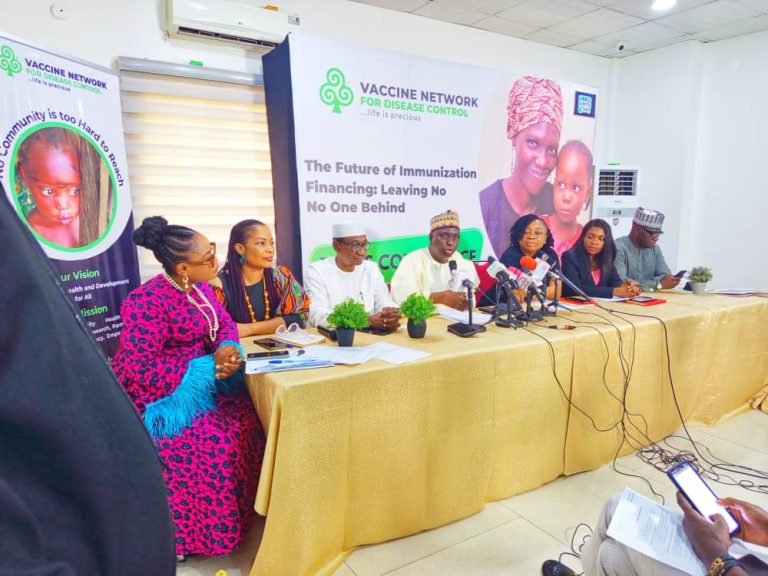-
Nigeria’s vaccine financing more vulnerable than ever
From Fred Ezeh, Abuja
President Bola Ahmed Tinubu has been called upon to instruct the Ministry of Budget and National Planning to create a predictable, efficient, and sustainable immunisation financing framework for Nigeria.
Advocates argue that the current inclusion of vaccine funds in the Service-Wide Vote leads to uncertain disbursements, despite immunisation being both a health priority and a cost-effective economic investment that saves lives and reduces healthcare costs.
Chika Offor, Executive Director of the Vaccine Network for Disease Control (VNDC), raised this concern at a press conference in Abuja on Monday, April 7. She warned that Nigeria’s future, particularly its human resources, is at risk due to inadequate focus on vaccine financing. Offor urged the National Assembly to back the inclusion of vaccine financing as a first-line charge in the annual budget to ensure consistent and timely funding. She also recommended that state and local governments allocate dedicated vaccine funds, release budgets promptly, and establish accountability measures.
“Since December 2023, the fate of vaccine financing in Nigeria has been uncertain,” Offor said. “Despite advocacy through the Partnership to Reach Zero-Dose Children (PREACH) initiative, the 2022 and 2023 vaccine funds remained unreleased.”
She noted a turning point in December 2024 when the Federal Government cleared these backlogs and released 25% of the 2024 vaccine budget, praising President Tinubu, Health Minister Prof. Muhammad Ali Pate, and Finance Minister Wale Edun for their efforts.
The 2025 budget allocates N231.7 billion for immunisation, malaria vaccination, and vaccine tracking—a step toward universal coverage. However, Offor cautioned that sustainability is threatened by USAID’s funding exit, declining donor support, shrinking fiscal space, and competing priorities. “Nigeria’s vaccine financing is more vulnerable than ever,” she said. “Without swift action, we risk losing 2024’s gains.”
Offor urged the private sector to bolster vaccine financing, emphasising that a healthy population fuels economic growth. She also lauded Tinubu’s N1 trillion investment in strengthening Primary Healthcare Centres (PHCs), noting that robust PHCs enhance vaccine access, reduce zero-dose children, and improve health outcomes.
“The time to act is now,” she stressed. “Every child, every eligible girl, and every community deserves life-saving vaccines.”
She highlighted Nigeria’s immunisation successes: eradicating wild poliovirus, protecting over 30 million children under five, and achieving 71% HPV vaccination coverage for over 12 million girls. Yet, Nigeria still has one of the highest numbers of zero-dose children—those never receiving routine vaccines. “These are real lives at stake,” Offor said. “A sustainable financing strategy is critical for predictable funding and timely vaccine supply.”
Former Kwara Senator Ibrahim Oloriegbe, recently appointed Chairman of the National Health Insurance Authority (NHIA), echoed this call. He emphasised that uninterrupted funding for immunisation is vital to safeguard Nigeria’s youth, the nation’s most valuable asset.

